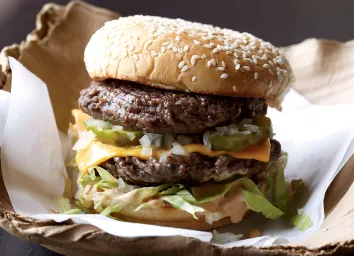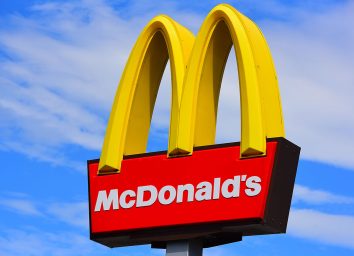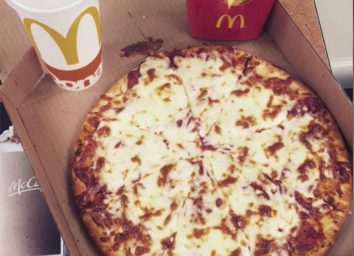What a McDonald’s Big Mac Cost the Year You Were Born
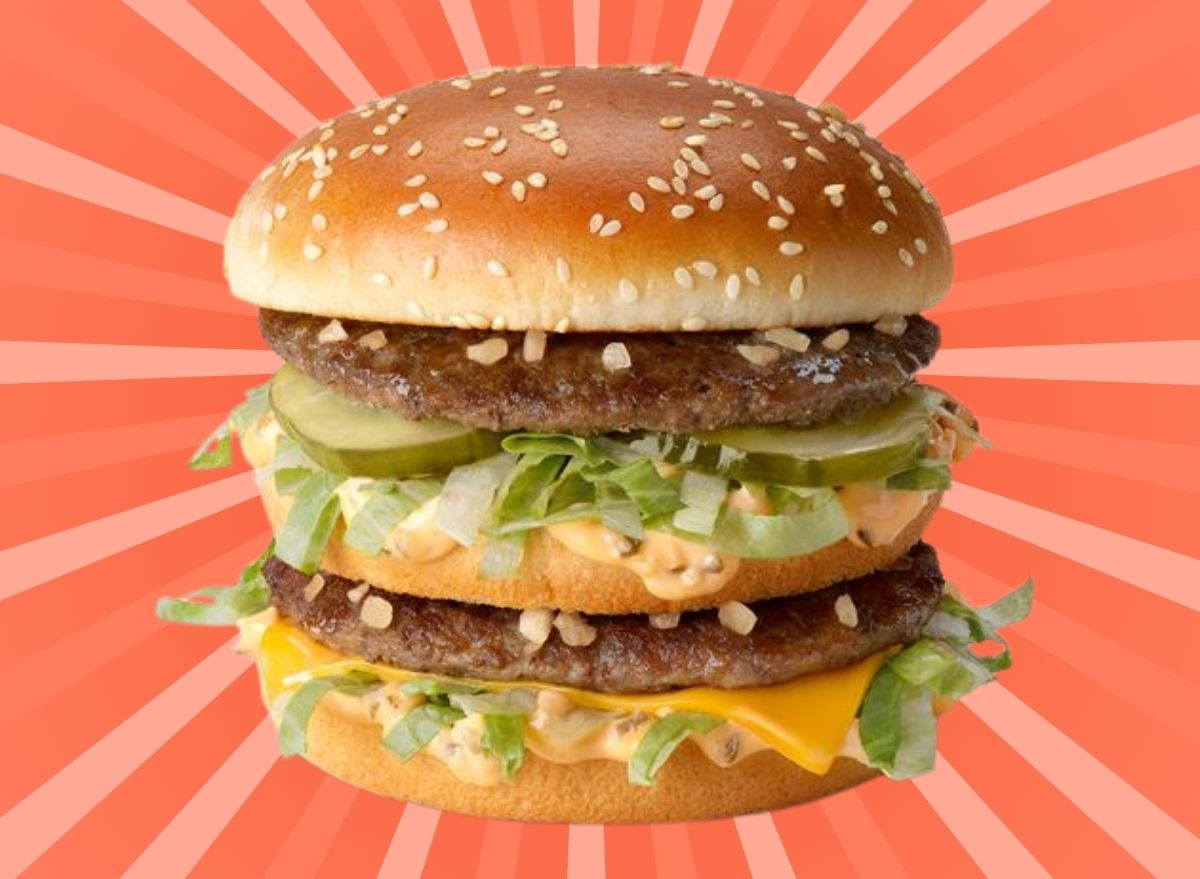
As frustrations about rising fast-food prices persist, McDonald’s remains at the center of the conversation. The fast-food giant has repeatedly made headlines because of its eyebrow-raising prices, such as the $17.89 combo meal that went viral on social media last year. McDonald’s has since tried to shift its focus to making its food more affordable. While none of the chain’s menu items have been immune to price increases, one often makes its way into price-related discussions: the Big Mac.
Introduced in 1968, this iconic fast-food burger is the subject of The Economist’s famous price index, aptly named the “Big Mac Index.” Also referred to as “Burgernomics,” the price of a Big Mac is used to show how foreign currencies are valued against each other since the burger is available across the globe. Statista notes that The Economist “converts the national average price of a Big Mac into U.S. dollars using the exchange rate at that point in time.”
Although McDonald’s prices vary by location— with 90% of restaurants independently owned and operated by franchisees who can set their own prices—it’s no surprise that the cost of a Big Mac has significantly increased since its debut. Here’s a look at how one of the most popular fast-food items has risen in price over the last 56 years.
1960s
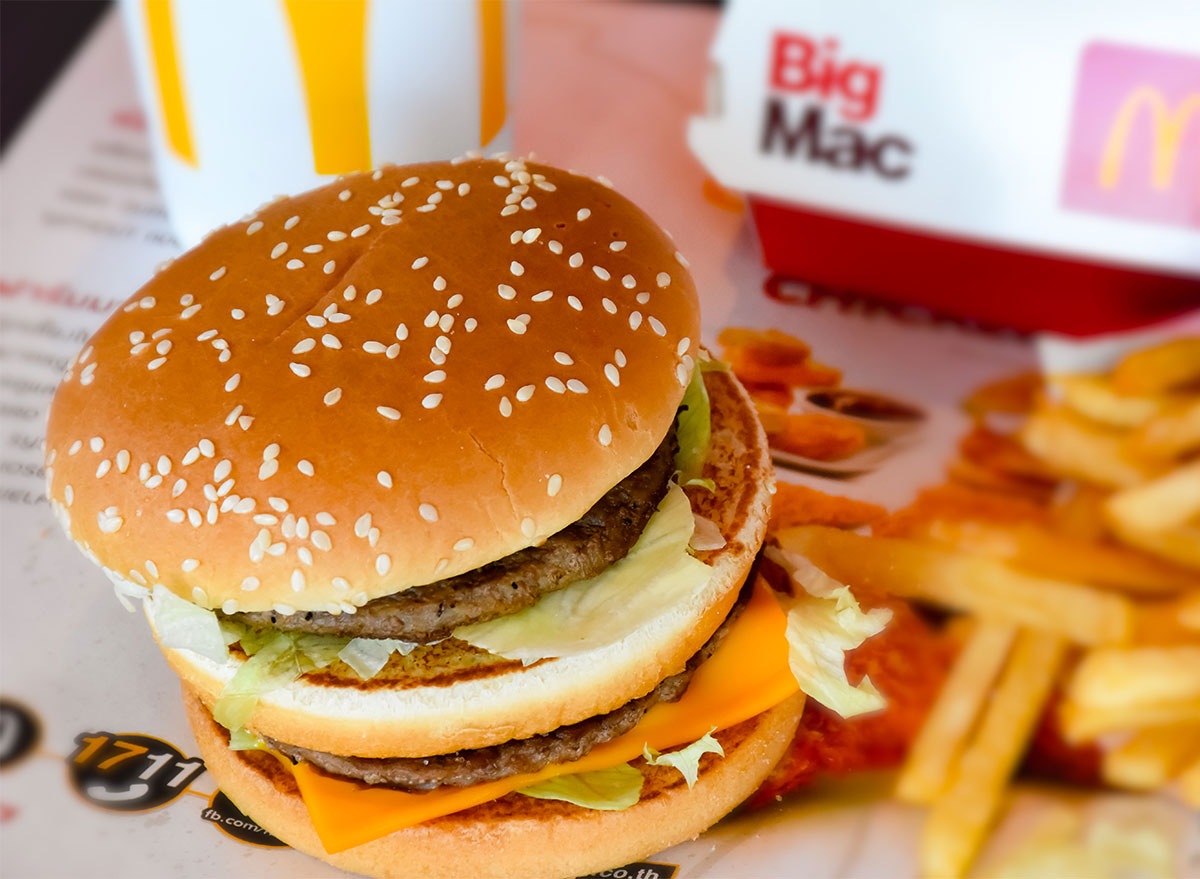
While McDonald’s first opened in 1953, it wasn’t until 1968 that the chain launched the beloved Big Mac. Owner and operator Jim Delligatti invented this fast-food creation, adding it to the menu of his Uniontown, Pa., location in 1967. The burger cost just 45 cents, according to The New York Times. Then, in 1968, McDonald’s released the Big Mac on a nationwide scale.
1970s
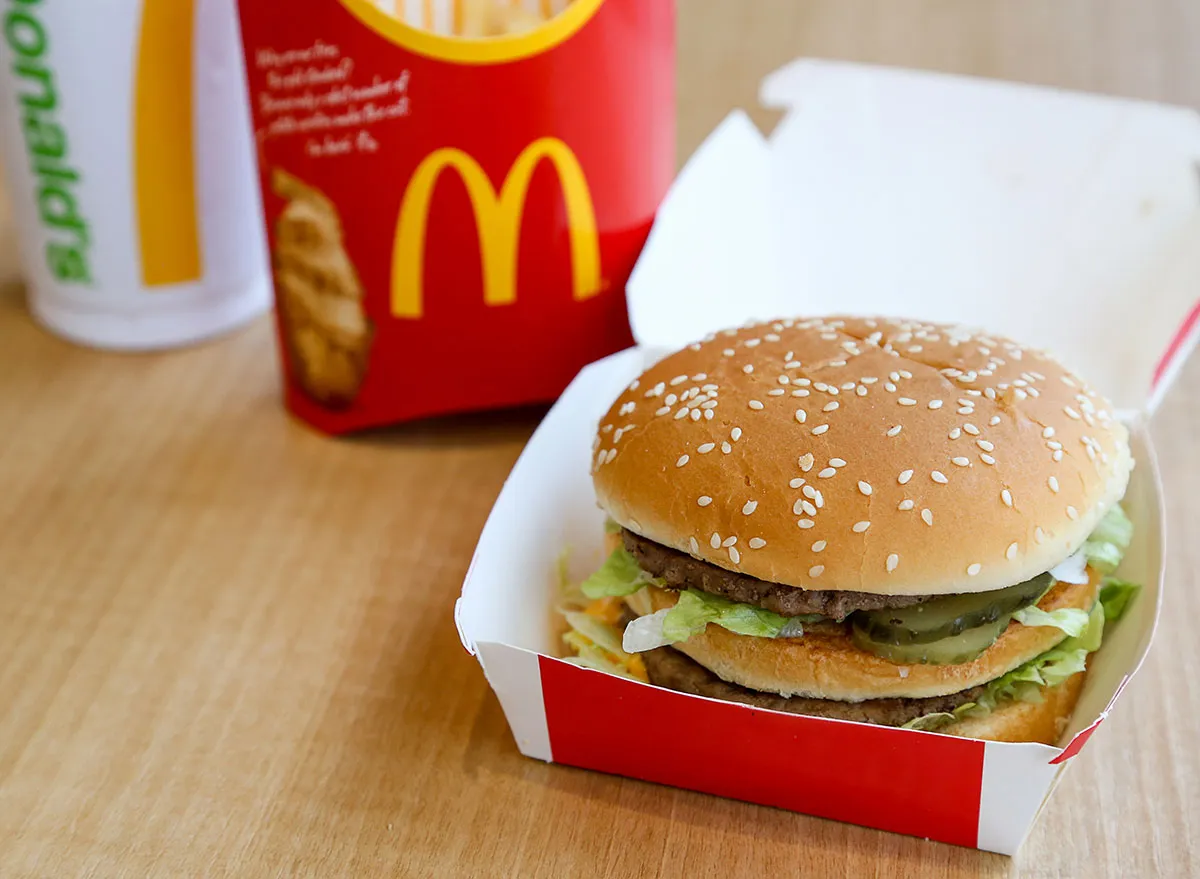
A vintage McDonald’s menu from the 1970s, which was shared on Reddit, lists Big Macs for just 65 cents each. Meanwhile, a large order of fries cost nearly as much: 46 cents.
Though the depicted menu from the Reddit thread doesn’t specify the restaurant’s location, The New York Times previously reported that a Big Mac in New York cost 85 cents back in 1974.
1980s
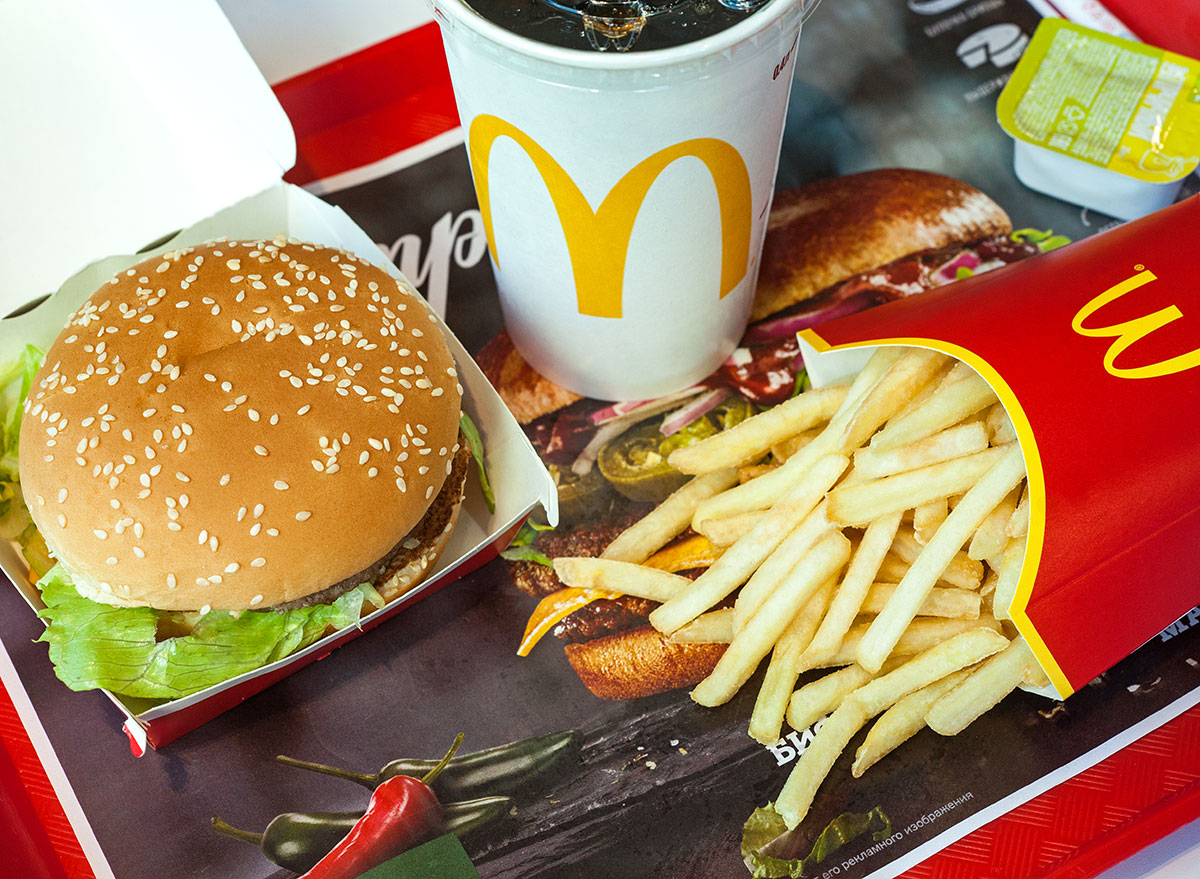
By the 1980s, McDonald’s shifted its focus to meal deals as opposed to just burgers and sides. Take the Big Mac Value pack, for example, which included a Big Mac, fries, and a Coke for just $2.59, as shown in a 1985 commercial.
By comparison, a simple Big Mac cost just $1.60 in 1986, according to The Economist, which introduced its Big Mac Index that same year.
1990s
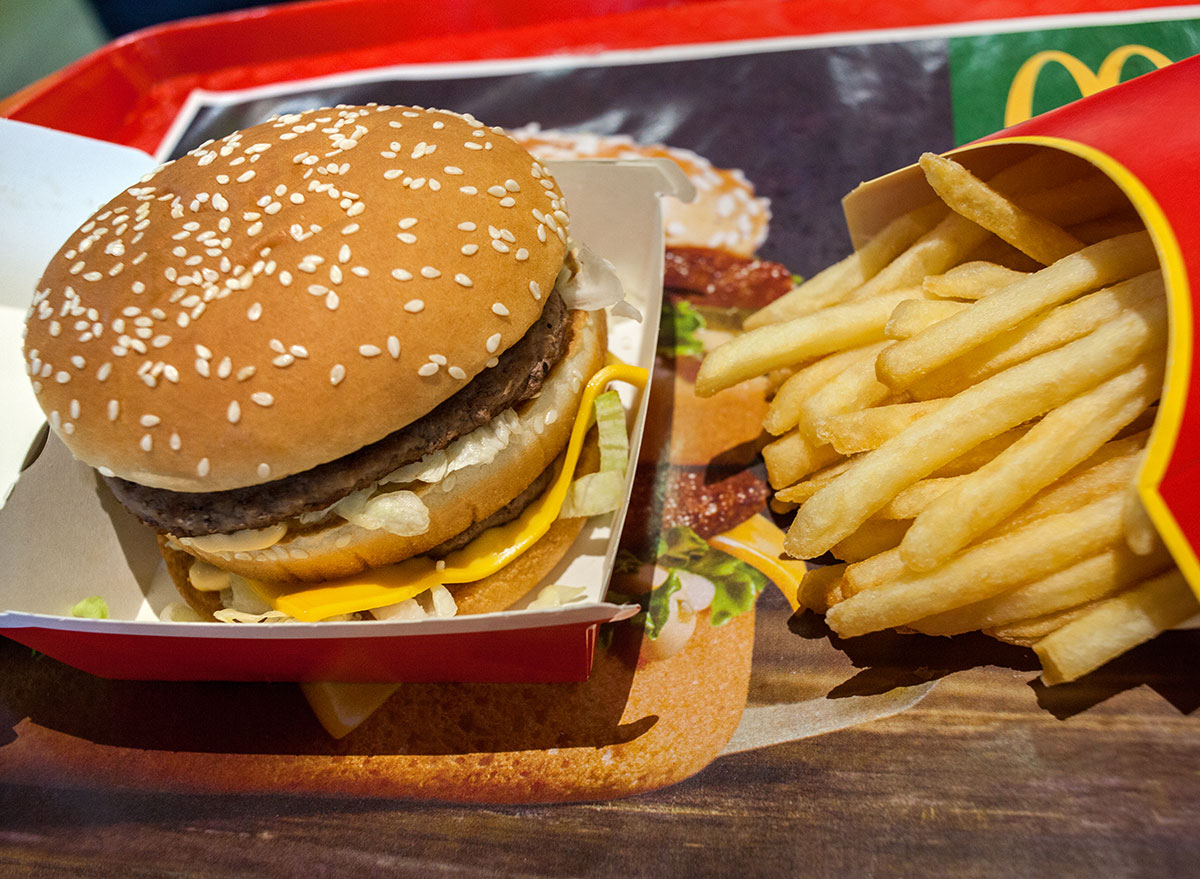
Earlier this year, photographer and YouTuber Chris Lockhardt shared a video of an abandoned McDonald’s location on the remote island of Adak, Alaska. At this location, which closed in 1994, there was a seemingly untouched menu board showcasing a Big Mac priced at $2.45. A Big Mac Value Meal, which also included large fries and a medium drink, cost $4.59.
Four years later, the average price of a Big Mac was $2.50, according to Seeking Alpha.
2000s
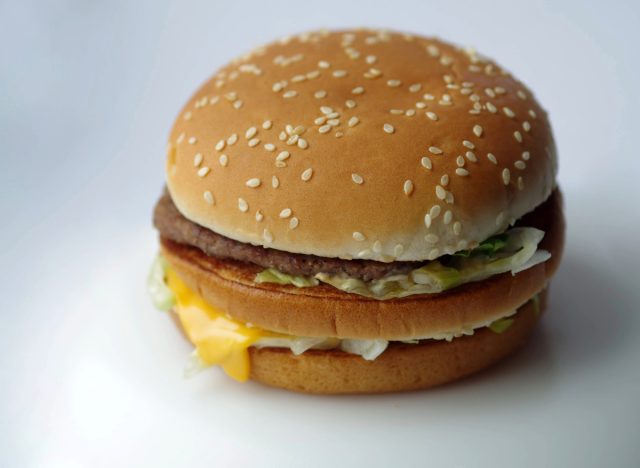
The Big Mac entered the 2000s with an average price of $2.24, according the The Economist’s Big Mac Index. As the years progressed, the cost of this item steadily increased to $2.35 in March 2002, $2.58 in May 2005, and $3.21 in May 2008.
2010s
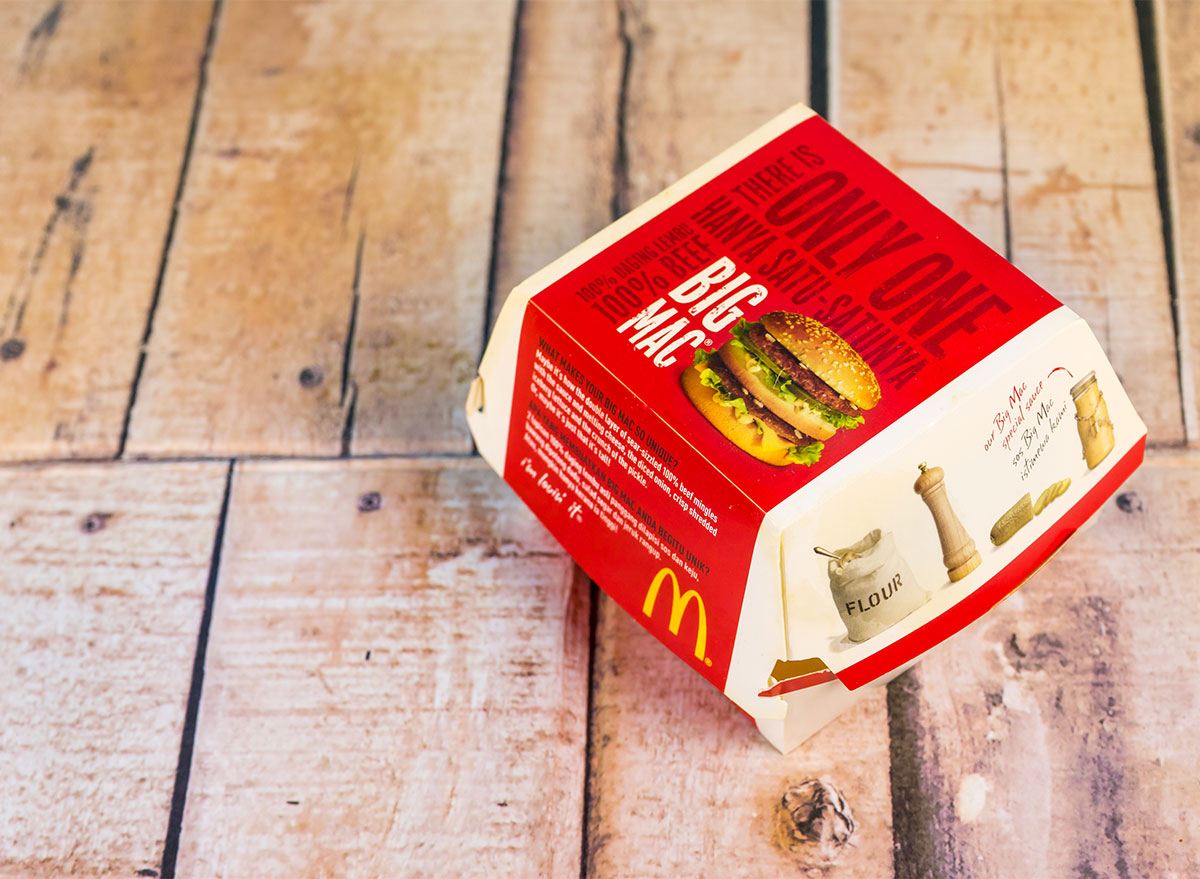
According to the Big Mac Index, the average price of Big Mac was $4.18 in June 2013. By July 2019, the price hit $4.71.
2020
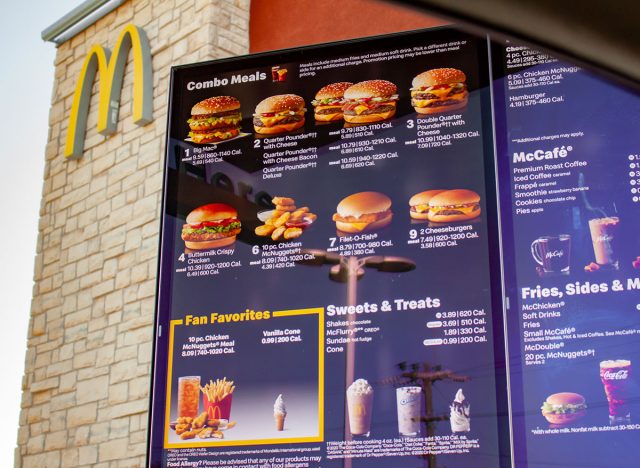
In December 2020, the average price of a Big Mac rose to $4.89. Meanwhile, in New York City, a Big Mac cost a solid $5, while a Big Mac meal came to $7.89.
2024
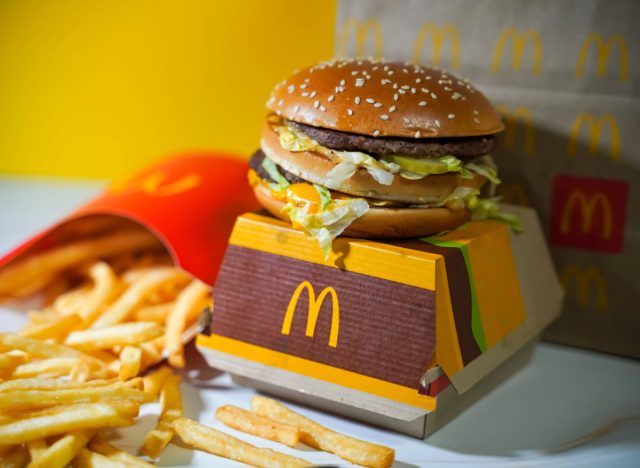
The latest Big Mac Index, which was reported in January 2024, found the average price of a Big Mac to be $5.69. However, as previously mentioned, McDonald’s prices can vary by location.
Right now, in the greater New York City area, you’ll find a wide range of prices for McDonald’s signature sandwich, anywhere from $5.39 to $6.69, depending on your specific zip code. In one Brooklyn neighborhood, a Big Mac combo with medium-size fries costs as much as $10.79. Or, make it a large for $11.69!
This story has been updated to include additional entries, updated information, copy edits, and fact checking.

